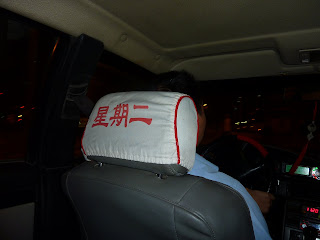 |
| 星期二 = Tuesday Photo Danny Friedmann |
The claimant had sent seven letters to Taobao asking it to delete information supplied by the vendor regarding the counterfeit products. Taobao deleted the information but did not take any further action against the vendor such as freezing its account or checking other information uploaded by the vendor to the platform. Consequently, the vendor was able to maintain information about other counterfeit products it was selling on Taobao.
The first instance court stated that if a network provider deletes information after receiving a notice, this is a necessary condition of non-liability, but not a sufficient condition - it may need to do more. Taobao had failed to take further steps against this specific infringer - something its own IPR protection rules already contemplate - and consequently was liable for contributory infringement.
This marks a departure from previous decisions, which did not impose liability on Taobao if it immediately deleted the counterfeit product information. Article 36 of the Tort Liability Law deals specifically with internet providers, stating that "[w]here a network service provider knows that a network user is infringing upon a civil right or interest of another person through its network services, and fails to take necessary measures, it shall be jointly and severally liable for any additional harm with the network user."
The Chinese judiciary is currently drafting a judicial interpretation to deal with on-line liabilities and safe harbours in the copyright field, and it is hoped that will add further clarity to the developing jurisprudential picture.
Guest blog by Tim Smith, Rouse Beijing.


